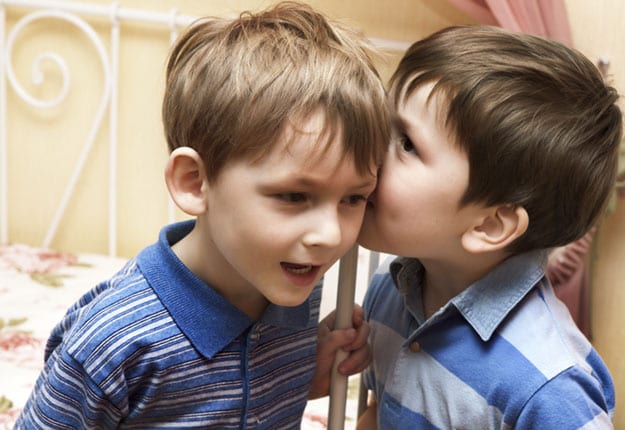Did you know that 41-75% of Australian preschoolers who have early language delays still experience reading difficulties at the age of eight?
It’s a worrying statistic, but studies have shown that if you want your child to have solid foundations for later literacy, it’s important to ensure that your preschooler’s speech and language skills are age appropriate now.
According to paediatric Speech Pathologist Rebecca King from Kids First Children’s Services in Sydney, children frequently make mistakes when they are learning to speak.
“When they are learning to talk, all children sometimes utter oddly worded sentences, put speech sounds in the wrong spots or omit them altogether,” she said.
“If your three year old is saying ‘hopstible’ instead of ‘hospital’, there is probably not a lot to worry about. However if your child is still making this error at the age of four and half, it would be worth consulting a speech pathologist to help your child to develop age appropriate speech and language skills.”
Rebecca says that it’s not uncommon for kids aged between two and six to misunderstand what is said to them or to forget a sequence of instructions.
“If your child occasionally forgets things, you should not be overly concerned,” she said.
“But if your child seems to be ‘tuned out’ or consistently unable to remember something that has been recently said to them, have them seen by a specialist who can determine if this is something that requires support.”
Ms King said that while making some simple language errors is a normal part of children’s development, there are some abnormal speech and language habits that parents should monitor closely and seek advice about if they are concerned.
“It is not typical for children to stutter, be disinterested in communicating with other people or make infrequent eye-contact with others,” Rebecca said.
She advised that parents should also be on the lookout for preschoolers who are stand-offish with people who are not members of their family, echo all or part of what other people say word-for-word or speak with a consistently hoarse voice.
“Some children have naturally reserved temperaments and many go through phases of shyness however, parents need to be careful that these behaviours do not mask an underlying problem.”
“Issues like stuttering and an inability to connect with others can have long term effects on a child’s social, emotional and learning development. They need to be addressed as quickly as possible so that children have the best chance possible to learn to communicate successfully.
Ms King said that a paediatric speech and language specialist is the best person to advise parents about strategies to help a child overcome communication challenges.
“In our experience at Kids First, a parents’ gut instinct about their child is rarely wrong. If you are concerned, seek advice, if only for your peace of mind.”
“Language is the precursor to all learning and international research has proven that early intervention gives kids the best chance of overcoming communication difficulties.”
“An independent professional can give you the information you need to make informed decisions for your child and the strategies you learn may make an enormous difference to your child’s future happiness and health.”
To find a paediatric speech pathologist in your area, contact Speech Pathology Australia




















3:14 pm
5:36 pm
10:48 pm
4:10 pm
2:14 pm
12:43 pm
9:27 am
12:48 pm
11:21 am
1:09 pm
1:08 pm
3:22 pm
3:23 pm
7:30 pm
11:17 am
2:49 pm
9:27 pm
5:10 pm
7:41 pm
3:35 pm
- 1
- 2
- …
- 6
- »
Post a commentTo post a review/comment please join us or login so we can allocate your points.